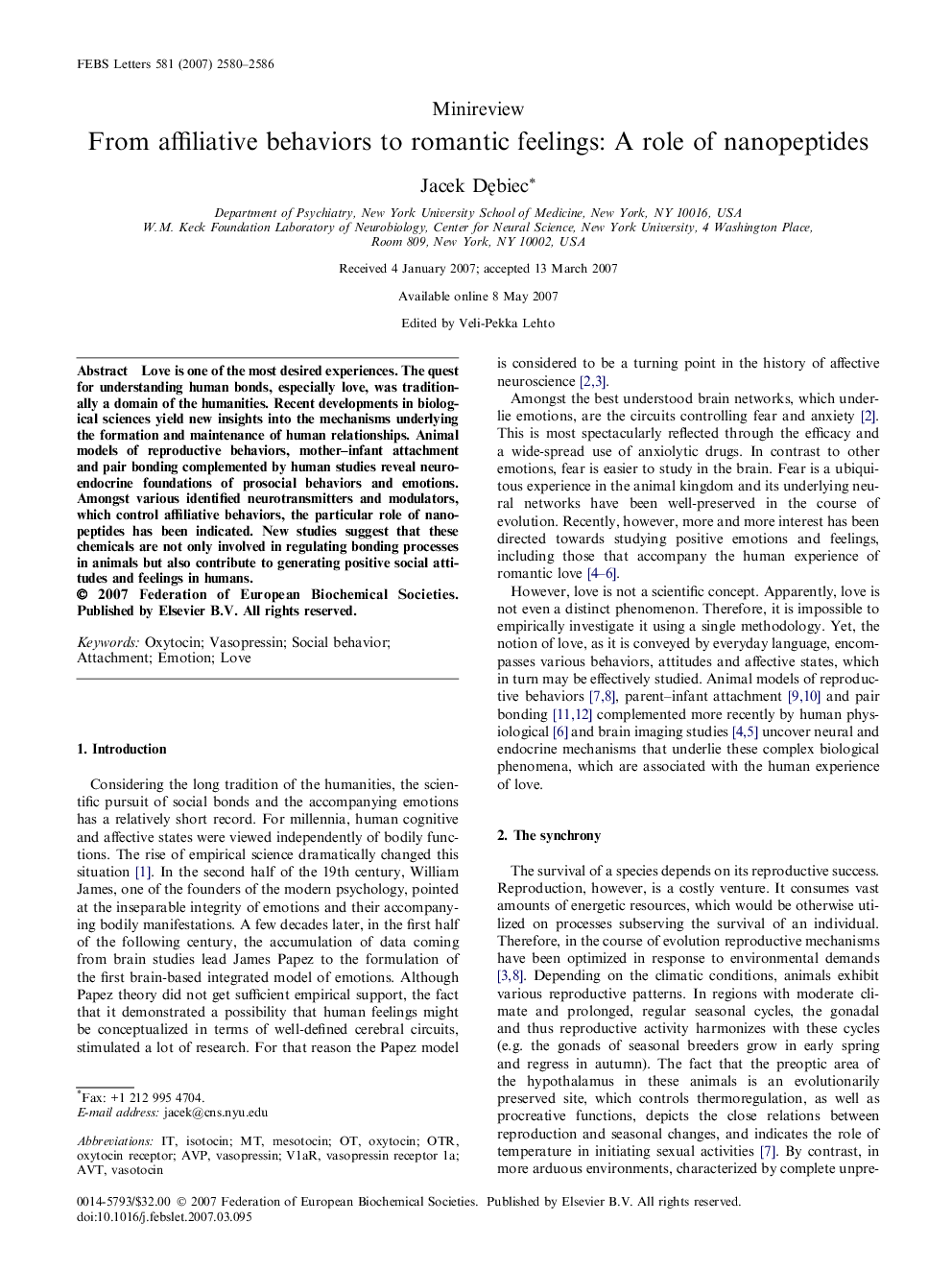| Article ID | Journal | Published Year | Pages | File Type |
|---|---|---|---|---|
| 2051686 | FEBS Letters | 2007 | 7 Pages |
Love is one of the most desired experiences. The quest for understanding human bonds, especially love, was traditionally a domain of the humanities. Recent developments in biological sciences yield new insights into the mechanisms underlying the formation and maintenance of human relationships. Animal models of reproductive behaviors, mother–infant attachment and pair bonding complemented by human studies reveal neuroendocrine foundations of prosocial behaviors and emotions. Amongst various identified neurotransmitters and modulators, which control affiliative behaviors, the particular role of nanopeptides has been indicated. New studies suggest that these chemicals are not only involved in regulating bonding processes in animals but also contribute to generating positive social attitudes and feelings in humans.
